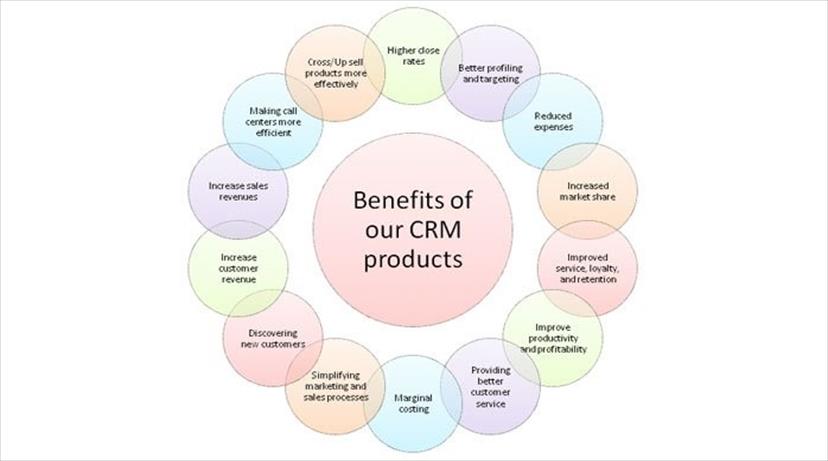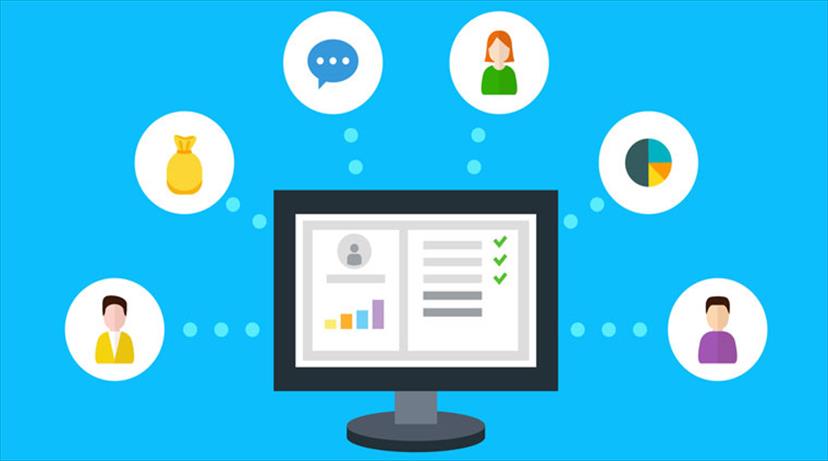One of the best company to work and IT solutions. Delivered product quickly and very fast. It was really mice working with them. I will give them move orders.
CRM in Healthcare Organizations and How It Helps Hospitals | Tritan CRM |
The benefits of CRM for a healthcare business range from a centralized data hub to improving patient care and being organized.

CRM in Healthcare Organizations and How It Helps Hospitals
What is a healthcare CRM?
A healthcare customer relationship management (CRM) system is a valuable tool to provide up-to-date data about patients, give quality assistance, gather helpful insights, and give productive customer management procedures.
WHAT IS THE MOTIVE OF A CRM SYSTEM IN THE HEALTHCARE INDUSTRY AND HOW IT IS DIFFERENT FROM EHR?
- The healthcare industry is overfilled with acronyms, don’t you agree? And whatever they symbolize, be it a software solution or governmental procedure, each of them is explained to be the second-best thing. Wasn’t EHR (Electronic Health Records) thought to translate all your organizational problems? Now they say you also require a CRM for healthcare. Why and how is it unique from EHR? That’s what we’ll talk about here.
- The major difference is that EHR systems are built to adapt to patients only when they are at your facility, while medical CRM attempts to apprehend their whole medical journey. Your objective is to give good service to people who come to your hospitals or clinic, this is what EHRs are built for. They’ll give you medical history, medical charting functionality, medicine suggestions, and even diagnosis treatment.
- We cannot forget, still, that every patient’s journey usually begins before the visit and may proceed long after it. There is an awareness phase when a patient experiences mild symptoms but doesn’t understand there is trouble, yet. Then there are phrases like getting the right diagnosis, discovering the applicable treatment, following the regimen, and revising treatment. Ideally, the journey will finalize with a cure. Sometimes, still, it may continue with a relapse phase.
Encircling the full patient journey with a CRM Solutions
What happens in-between the doctor visits is almost as critical as during them. Think of all the hostile effects a patient might undergo if he doesn’t obey your instructions. Nearly 195,000 people die across the world every year because they do not obey their doctor’s commands. Therefore, the major objective of CRM in the healthcare enterprise is to encourage patients throughout their whole healthcare journeys.
This solution can enable you to educate your patients at the awareness phase, tailor your services to their necessities and intentions, facilitate doctor-patient communication, and much more.
Some of the characteristics this CRM software will give are:
- A 360° perspective of the patient
- Segmentation functionality
- Email campaigns
- Numerous communication channels
- Satisfaction questionnaires and more.
Now that you understand the variation between an EHR and CRM, it is moreover worth mentioning that you don’t require to select between them, but rather utilize them both, in alliance with each other. In different words, EHR and medical CRM have to be combined to share useful information about customers.
TOP 5 REASONS TO DEVELOP A HEALTHCARE CRM
Unluckily, CRM is not a magical medicine. It cannot make your exercise patient-centric all by itself. However, this influential tool can make an individualized strategy more logical for you.
Here are the main reasons for building healthcare CRM software:
- Captivate new patients at your hospital
- Tailor your service to patients
- Organize doctor-patient connections
- Engage patients
- Gauge patient satisfaction
1. CAPTIVATE NEW PATIENTS AT YOUR HOSPITAL
Yes, you can Attract patients with a CRM. If you are in a highly robust healthcare profession, you understand what it’s like to combat getting more patients. This software can enable to you discover new customers in various ways.
Targeted email campaigns
You can utilize CRM to captivate new patients via targeted drip campaigns. By targeted audience, we mean intended for a very particular group of people. And by a drip marketing campaign, we mean a bundle of automated emails with content designed to match targeted groups. You can target people at various stages in the patient journey. Either in the early stages of becoming familiar with the problem or risk, or later on, when searching for medical treatment choices.
The greatest potential is frequently in reaching out to potential patients who are in the awareness phase. A good instance of this is when a pediatric clinic targets soon-to-be moms and new moms. They send practical content to these women that are most applicable to their current life problems, such as breastfeeding advice, child development phases, and so on. Such marketing campaigns can be a huge way to get in front of your potential clients and to earn their faith with excellent information.
2. TAILOR YOUR SERVICES TO INDIVIDUAL PATIENTS
Tailor medication to patients with a CRM solution
The ‘one-size-fits-all’ technique is way forgotten in the world of customer products and assistance. From customized Tea to running shoes, as shoppers, we have been relishing mass customization for a while now.
But not in the healthcare business. We hardly get the indulgence of tailored services in clinics. Even though there are exceptions, for one justification or another, the cookie-cutter strategy is however prevalent at the doctor’s office.
However, if leading consumer organizations have substantiated that customization leads to tremendous customer satisfaction and financial profits, the exact should be valid for healthcare. Research exhibits a direct link between a tailored strategy and patient happiness, and better results. One of the ways to ‘automate’ an individual technique is with segmentation.
Industry specialists suggest the following cycle of steps:
- Recognize the target population
- Select relevant criteria
- Segment
- Tailor medical treatment into packages (plans)
3. MANAGE DOCTOR-PATIENT RELATIONSHIPS
Doctor-patient relationships greatly involve the proficiency to communicate, and the power to sympathize. The lack of a significant connection between doctor and patient was verified to lead to low recovery. While good connections, on the opposite, correlate with exceptional healthcare results such as lesser symptoms, reduction in the volume of readmissions, and reasonable disease management.
While hospital CRM software won’t enable you with sympathy, it can enable you to efficiently build and oversee connections with your customers by giving :
- A ‘complete image’ and
- Effective communication channels.
And here is how…
The 360°-degree perspective of the patient
At the core of any sort of CRM is an enormous database that gives as much helpful data about the subject in question as feasible. With a good CRM, the doctor can have all the crucial information at their fingertips. With patient CRM, this data can be grabbed from your EHR, as well as your referrals and partners.
Communication
- Another way to promote communication with patients outside the clinic/healthcare, and make the doctor’s life easier, is the usage of emails and messengers. This communication implies become particularly important when they are a part of the patient CRM software. This can be as easy as incorporating your email with a CRM or as sophisticated as a built-in messenger or email.
- Initially, people will be pleased for being able to reach out rapidly to you with as small friction as possible. This will enable them to get crucial opinions and follow the doctor’s instructions. Secondly, it is super useful to see the previous records of all interactions with a patient attached to his/her profile in the system, instead of switching back and forth between several communication channels and apps.
ADVANTAGES OF BUILDING YOUR HOSPITAL TRITAN CRM
If you’ve been surveying CRMs in healthcare for a while, you must have glimpsed that there are tons of canned solutions on the market. Some are reasonable, while others need substantial investment.
Our categorization of the accessible CRM solutions is as follows:
- General-purpose
- Adapted to healthcare
- Specialized for healthcare
- Custom-built
The advantages of having a CRM in the Healthcare Industr
1. Reports, Metrics, and Dashboards
A CRM stores data on patients in a communications module so that it is readily accessible to workers throughout the healthcare system to plan and trace patient appointments and interactions. Many doctors that have their clinics, and hospitals have set up an online digital medical portal to make new patient check-in and record updates for current patients less maintaining such records time-consuming for hospital staff. The patient management module of the CRM facilitates staff to add or update patient records, and access medical records of patients to give better care.
The reporting module of the CRM can be created to segment the volume of the patient population in a given hospital to assess and then comprehend them much better. Also, it can calculate particular metrics such as patient retention rate, length of stay, etc. Reports can be produced by metric or customized data to track and gauge progress over time.
2. Mailing and Marketing Campaigns
Understanding who patients are, what they require, and what they are looking for enables the healthcare units to enhance their services and quality of care and create powerful connections with their patients. A healthcare CRM can trace patient satisfaction and the patient’s possibility of referring others to the healthcare units. Such data gives helpful feedback to healthcare administrators to make data-driven judgments.
The CRM enables you to filter your contacts to get a targeted directory of patients or prospective patients who would most likely be eager in upcoming special offers/bonuses or new assistance or products.
3. Integration with Existing Software
Your new healthcare CRM must give EMR integration and function seamlessly with your hospital's current applications.
4. Availability on numerous platforms
CRM software is one of the most prominent categories of software for company and healthcare practices. Roughly 70 % of patients access CRM software from their smartphone, a cloud-based platform, or a tablet.
5. Customer Management Processes
There is a substantial volume of daily tasks that must be finalized for internal procedures to operate correctly. Filing out forms, reporting, compliance with restrictions, appointments, patient notes by doctors and nurses, pills prescribed and on hand, etc. All of these chores, which involve a particular sequence of actions, can be highly automated with a CRM. The task management module of the CRM enables staff to add a task, assign it to an individual staff member, and trace the progress, deadline, priority, and completion of the healthcare staff.
Conclusion
A Healthcare CRM is an adaptable system that works as a medical records portal, patient tracking system, statistical analysis system, marketing platform, and routine task automation center. Tailored to your special healthcare desires, a CRM can free up you and your staff to concentrate on the patient's treatments, and extra strategic projects, which results in enhanced customer experience, decreasing waiting times.








0 Comment